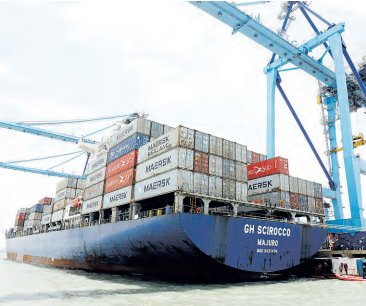

THE mandatory requirement for all consignments imported into Kenya to be accompanied by a Certificate of Origin will mainly hit small players who consolidate cargoe, traders now say.
Kenya Revenue Authority (KRA) has directed that effective July 1, all imports must have the said certificate issued by a competent authority in the exporting country.
Importers, customs clearing agents and the general public have since been put on notice.
To support a smooth transition, a limited window until September 1, 2025 has been provided to facilitate compliance and allow importers time to secure the required documents.
“Note that at the lapse of this window, non-compliant consignments shall be liable to forfeiture as provided for in the Act,” Commissioner for Customs and Border Control, Lilian Nyawanda, said in the notice.
This marks a radical shift from prior practice, where Certificates of origin were required only for goods under preferential trade arrangements to determine origin and confer tariff benefits.
A competent authority refers to a government agency or officially designated body in the exporting country that is authorised to issue certificates of origin.
A Certificate of Origin shall be valid if it discloses name and address of both the exporter and importer, port of origin, accurate description of the goods, quantity of the goods, country of origin; and country of destination.
Non-compliance will see KRA impose penalties, which shall lead to seizure or forfeiture of goods to the Commissioner or an authorised officer.
“KRA
remains committed to facilitating legitimate trade while ensuring full
compliance with the law,” Nyawanda said in the notice.
The Shippers Council of Eastern Africa (SCEA) which represents the interests of importers and exporters has however raise concerns, noting that the move will have an impact on small tradrs mainly thoise who consolidate cargo, even as it terms the move a to require an ordinary certificate which does not prefer preferences, as “a big surprise.”
According to SCEA, it is increasingly common for importers to procure goods from shippers who consolidate cargo from multiple countries of origin.
For example, a shipper based in Singapore may source products from various countries such as China, Hong Kong, Indonesia, and Malaysia, and then consolidate the cargo into a single shipment destined for Kenya.
“In such a scenario, we would like to understand the appropriate documentation required at the point of importation into Kenya: Is the shipper in Singapore required to provide individual certificates of origin from each of the original source? We shall be seeing for further consultations and also call for exemptions,” SCEA chief executive Agayo Ogambi told the Star.
Trade Facilitation Agreement under the World Trade Orgnanisation , drawing upon General Agreement on Tariffs and Trade (GATT) Article VIII, emphasises that fees, formalities and documentation—including COOs—should be limited to what is strictly necessary.
The World Customs Organisation also highlights that non-preferential proofs of origin should not be mandatory for general imports.
This is only required when a specific trade policy such as anti-dumping, quotas or origin marking calls for it and should be applied on a case-by-case basis, not automatically.
“We shall also seek clarity if the ordinary certificate of origin can be governed by the Tax Procedures Act and not the East Africa Community Customs Management Act,” Ogambi said, “ We appreciate the transitional period but we look forward to engaging the Commissioner of Customs KRA on its implementation and implications.”
KRA’s Customs and Border Control Department collected Sh879.3 billion in the financial year ended June 2025, official data shows, win an average daily collection of Sh3.5 billion.
The performance was driven by non-oil taxes which grew by 10.3 per cent to Sh541 billion and oil taxes which grew by 12.5 per cent to Sh338.276 billion.
Import duty grew by 18.3 per cent to Sh157.9 billion with the agriculture and steel sectors leading with growths of 67 per cent and 39 per cent, respectively.
Excise Duty similarly grew by 11.6 per cent to Sh125.300 billion, Railway Development Levy (RDL) collection grew by 15 per cent to Sh36.820 billion while Road Maintenance Levy grew by 50.9 per cent to Sh119.662 billion.
The growth in RML is attributed to an increase in the applicable rates from Sh18 per litre to Sh25 per litre. Further, oil volumes notably grew by 13 per cent in July-June 2024-25 mainly from petrol, diesel and other oil products (coal, electrical energy, lubricating greases, among others.)
“The introduction of centralised clearance processes resulted in a 62 per cent reduction in time taken to clear cargo from 110 hours to 42 hours,” Nyawanda said yesterday.















